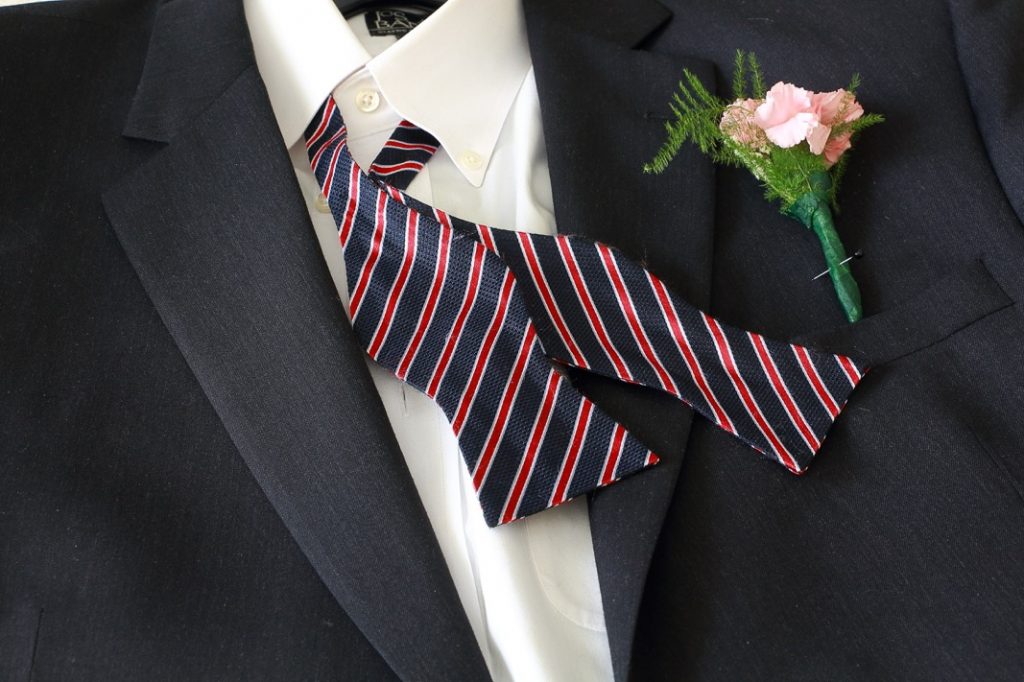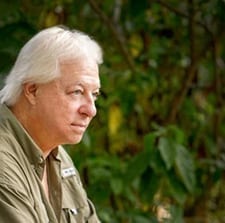Across The Savannah
April 18, 2019By Tom Poland
After The Funeral
Family funerals are different from other funerals. A family funeral makes me drift. I look at the flowers and listen to the ministers and music but my mind wanders. I avoid looking at the casket, choosing to summon up memorable moments, like scenes in an old cinema. I remember the person in full bloom.
When things really hit me, however, is after the funeral, when life supposedly gets back to normal, whatever that is. I put away my suit and recall kicks into high gear. And so it was that I began to call up memories of Aunt Sister, she of two familial names, whom we buried March 19.
She arrived August 11, 1923, as Sarah Evelyn Walker. I knew her as Aunt Sister. I didn’t know her name was Sarah until she was gone. She passed through times, which many of us will never see. Born during Prohibition, she was six when the Great Depression arrived. Sixteen when World War II erupted. Eighteen when Japan attacked Pearl Harbor. Forty when JFK died in Dallas. Forty-six when Neil Armstrong set foot on the moon. And there were hundreds upon hundreds of personal events she collected. What we call “life.” Births. Deaths. Vacations. Meals. Heartbreak. Elation. Disappointment. Careers. Family. Beloved pets.
 The things she learned. That’s why losing a loved one is like having a museum or a great library burn to the ground. Aunt Sister was the oldest of my late Mom’s sisters and she outlived all the girls save one. She would have been 96 August 11. When you live that long, you acquire a treasure chest of knowledge and experience. My memories include her home on a street called Kings Way, family reunions and hearing her laughter. I remember, too, at Kings Way, watching her, Mom, and Dad listening to Fats Domino’s 1956 recording of “Blueberry Hill.”
The things she learned. That’s why losing a loved one is like having a museum or a great library burn to the ground. Aunt Sister was the oldest of my late Mom’s sisters and she outlived all the girls save one. She would have been 96 August 11. When you live that long, you acquire a treasure chest of knowledge and experience. My memories include her home on a street called Kings Way, family reunions and hearing her laughter. I remember, too, at Kings Way, watching her, Mom, and Dad listening to Fats Domino’s 1956 recording of “Blueberry Hill.”
“I found my thrill/On Blueberry Hill/On Blueberry Hill/When I found you.”
I recall too when she told me about her job in an ammunition factory helping the war effort. The authorities arrested a co-worker, an operative, who was rendering ammunition defective.
Not quite ten years ago in a bit of random recall Aunt sister shared memories of her youth and the Great Depression with me. I hear her voice as I read what she recalled and I see people long gone: “Sundays mama would fix something special. We’d go to church and in the evening we’d go for a stroll. Wild grapes grew at an old home place and we’d climb trees. Mama and daddy taught us all about trees. We’d find muscadines, what we called fox grapes. We’d set out hooks for fish on Saturday nights. We’d fish on Sundays but we were scared the Devil would get us. Everybody had dresses made from bolts of cloth provided by the WPA so everybody looked alike.”
Aunt Sister remembered making do … “We didn’t eat eggs, we bartered them for things we didn’t have. Mama made her own snuff … dry them (tobacco leaves) out and put them in a sack and pound them into a powder and add sugar … we made homemade syrup … we ate organic and didn’t know it … soles of shoes would flap and daddy would wire them together … they would scratch others if they got too close … in spring dad would borrow $65 to buy cotton seed, fertilizer. In fall he’d pay back the $65 when the crop came in; what was left was all we had to make it to the next year.
“I remember wonderful meal soup with a hambone. Each family member could get a bite or two of meat and she’d mix meal and green onions from the garden. We entertained ourselves with seesaws, a flying jenny, and greased it with an old animal skin. Picking cotton and playing in pile of cotton: we had a good time.”
She remembers dresses made from flour sacks. “They had to be washed a lot to get the numbers and printing out.” She remembers her daddy making persimmon beer. “It had baked sweet potatoes in it and clean broomstraw went in the bottom to strain it. When it was ready, we all got one glass; it was sharp and tickled your tongue. That night a mule wandered through the yard and pulled the stopper out and that was the end of the persimmon beer.”
She recalled summer nights when “it was so hot we’d sleep on pallets on the grass beneath the stars. We shared a good garden with those whose garden failed. Daddy would kill a beef every year. Neighbors would do the same thing. He’d put it in a wagon and take it to the neighbors and share part of it. When they killed a beef they did the same thing. So everyone had some beef that way.”
It’s said that those who lived through the Great Depression never returned to who they were before it struck. I believe it. Here Aunt Sister recalls those hard days, but through it all, beneath it all, you detect hope and compassion. And sleeping on grass beneath the stars? What a beautiful way to deal with adversity.
Well, the years they do go by. My family tree grows young supple limbs as old, brittle limbs break away. One day I added up all the elders I knew as my “growing-up” family when I was a boy. The list came to eighteen names. Today, only two remain. I like to think the other sixteen are together again and they’re busy catching up with Aunt Sister now, and I’ll tell you something you can take to the bank. She will have a lot to tell them. A lot. And you can be there’ll be plenty of laughter.
Visit Tom Poland’s website at www.tompoland.net
Email Tom about most anything. [email protected]
Tom’s work appears in magazines and newspapers throughout the South. His books include South Carolina Country Roads, Classic Carolina Road Trips From Columbia, Georgialina, A Southland, As We Knew It, and Reflections of South Carolina, Vol. II. He’s the editor of Shrimp, Collards & Grits, a Lowcountry lifestyle magazine. He writes a column about the South, its people, traditions, lifestyle, and culture. A member of the SC Humanities Speaker’s Bureau, he frequently gives book-based talks. Governor Henry McMaster conferred the Order of the Palmetto upon Tom saying, “His work is exceptional to the state.” Tom grew up in Lincoln County, Georgia, and graduated from the University of Georgia. He lives in Columbia, South Carolina where he writes about “Georgialina”—his name for eastern Georgia and South Carolina.














